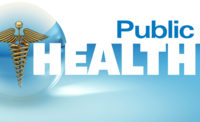The FDA this week released a draft of voluntary sodium targets in an effort to get the food industry to decrease sodium in their products. The goal: to help the public achieve a daily goal of no more 3000 milligrams in two years, and 2300 milligrams in a decade.
For the American Heart Association (AHA), the proposal can’t be finalized soon enough.
AHA CEO Nancy Brown said the new targets will significantly impact the health of Americans by reducing the risk of cardiovascular disease and stroke.
Billions in healthcare costs
“Lowering sodium levels in the food supply could eliminate about 1.5 million cases of uncontrolled hypertension and save billions of dollars in healthcare costs over the next decade,” said Brown.
More than 75 percent of the sodium consumed by Americans comes processed, prepackaged, and restaurant foods.
“That makes it nearly impossible for even the most highly motivated individuals to avoid an excessive amount of sodium in their diets. But if industry embraces the new voluntary targets, they will provide the public with better choices,” said Brown.
She noted that the gradual reduction in the draft guidance will give industry the time it needs to update products and give consumers time to adjust their taste buds.
Some companies already on board
General Mills has already been working to reduce sodium in many of its products. Food giants Mars Foods, Nestle, PepsiCo and Unilever have indicated their support of the targets, but Brown hinted that other companies may not follow suit.
“We hope that others in the food industry don’t take these new draft voluntary targets ‘with a grain of salt.’”
The National Salt Reduction Initiative has secured lower sodium commitments from nearly 30 other companies, including snack manufacturers, restaurants and fast food dining.



